In many countries it is customary to receive tips for a service charged, however, in Japan this can even be considered disrespectful. For this reason, let's understand the whole story of why you shouldn't tip in Japan.
In Japan, tipping can be considered offensive. Professionals in the service sector, including taxi drivers, waiters, as well as salespeople and employees in hotels, stores or any commercial establishment in the country, generally refuse to receive tips.
Índice de Conteúdo
The history of Tipping in the world did not affect Japan
For those unaware, a tip is an extra fee you pay someone for their services. In Brazil we kind of feel obliged to tip, since in the restaurants themselves they charge a percentage of 10% to the waiter.
Do you know the story of how tips came about? In Rome it was common to reward a porter with a glass of wine. It's even funny that the name bribe came from this tradition, where the drink was called – bribe.
Then, for convenience, people started to give money so they could buy their own drink. In Eastern society, on the other hand, there was a rigid hierarchy, where the “upper classes” thought they owed nothing to the “lower classes”.
Tipping is an action of showing their gratitude for kindness or sympathy to you. The Japanese don't think tipping is a good way to do this. If you receive money as a compensation for your kindness, you devalue your kindness. The Japanese like to do things without expecting any compensation.
Japan is not the only country that rejects tips. China and some other Asian countries also inherited the same culture, while other countries do not have the custom of receiving tips because the salary of employees is quite high or the tax is already included in the total.
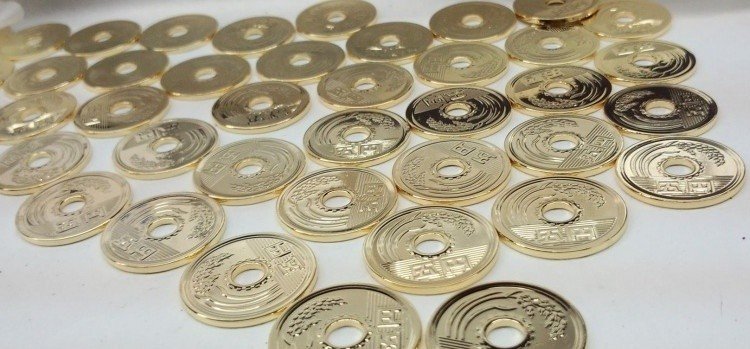
Pride, respect, education and ethics
One of the many characteristics of Japanese culture is a very strong loyalty to the employer, as well as a pride in the job and work in general. From this perspective, the tip undermines the employer's efforts and thereby renders the entire affair unworthy of the wait staff.
They take great pride in this, mostly for a simple reason. “The service you requested was properly billed, so why pay more? “They see it as a form of insult, so be careful not to do that!
Also, even if you tip, the service provider will not accept your money, and will duly refund the extra amount, out of politeness and ethics. You will rarely see anyone accepting tips there, but it's best not to risk it, let alone try to tip.
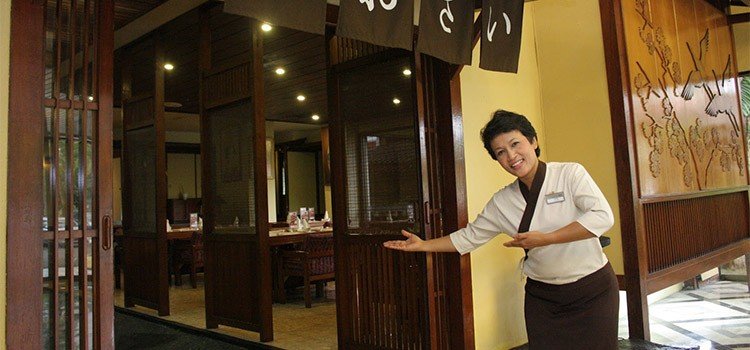
Not in the habit of leaving money in hand
Most Japanese restaurants require customers to pay for their meals at the front desk rather than leaving money with the waiter or waitress. That kind of puts the chances of any waiter getting a tip down.
Of course, the main reason for this is hygiene. Usually at cashiers you don't deliver money directly into the person's hand, the money is placed in a container to avoid contact between customer and cashier. All in order to please the customer.
Leaving money in a glass or on the table will only cause embarrassment and cause an attendant to run after you in the middle of the street to hand you back the money you forgot. The money will most likely fall into the hands of the police if they don't find you.
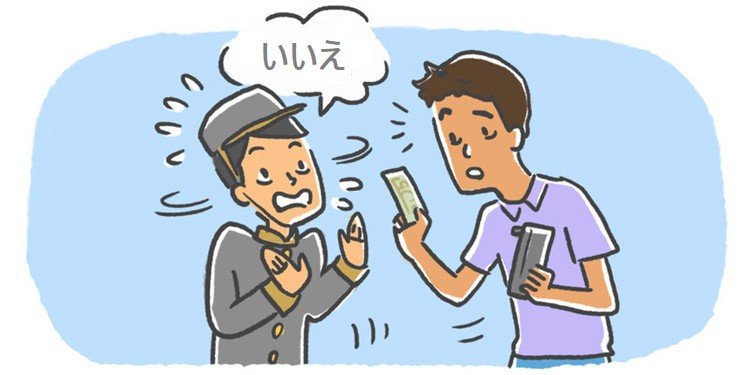
The article is still halfway through, but we recommend also reading:
How to thank someone without a tip?
Since most people in Japan don't get tips, how can you say thanks for a service? There are several ways to say thank you with words or actions:
Saying thank you, arigatou (ありがとう) – The best way to thank yourself in these situations is to say a simple thank you! In Japan, thank you has a much greater meaning, where you will be thanking and saying that you liked the service provided, sometimes even a nod will be worth it.
Praising the service provided – For a Japanese, nothing will be better than being praised for your work. This is also a matter of honor, as in the case of ramen, where making noise while eating means you like the dish. So, in addition to saying thank you, remember to praise the service provided and also say how satisfied you were!
Sincerity – This is one of the most important points, the Japanese like sincerity, so be sincere too. Do not say something that is not true, because if you tell the truth he will try to improve and don't worry, the provider will not be offended, but grateful. So sincerity always!
Gifts – If the person has done a lot for you, they can definitely accept a gift. Any gift in Japan must be given in an envelope or package. Often the person will thank you and open only at home.
Money in Envelope – If you insist on leaving money with someone, do not give it directly to the person. If you are in a hotel or restaurant, leave the envelope on the table when you leave. Still, this is a rather exaggerated act.

Can I tip change in Japan?
In Brazil it is common not to receive a penny from a purchase of 1.99. If this happens in Japan and you leave the store without getting the change for a penny, the lady will run after you to deliver that penny.
That's right, in markets and convenience stores, they will give you even a measly yen in change. If you don't want to carry dozens of yen coins, you can leave them inside a donation box that they usually have in some establishments.
It's not unusual to round up money for a taxi ride. Sometimes the ride was 2600 yen, you can hand over 3000 and tell the taxi driver to keep change. They may be hesitant, but generally they will accept, especially if you have carried luggage.
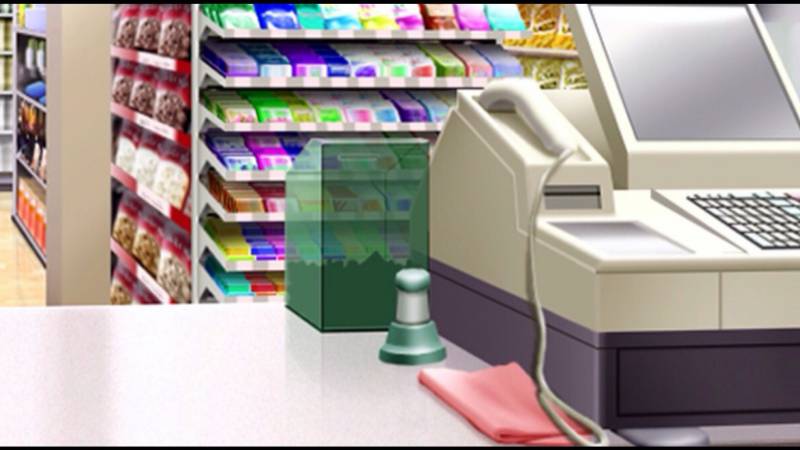
Kokorozuke - Closest to Tips
Contrary to popular belief, there are times and places where tipping is practiced. Usually, a hint, known as a kokorozuke [心付け], is provided before the service is performed. It was described as part of one of the greeting rituals.
Normally, but not always, Kokorozuke money is given in a small envelope; not in the elaborate envelopes that are common in weddings or funerals. Kokorozuke envelopes are simple and usually small.
The kokorozuke most people are familiar with is the one used in ryokans or luxury onsens. This is given to nakai-san (中居), which shows your room. This person will be responsible for one or more rooms and it is their job to organize and store things during your stay.
Typically, this person shows you your room, sets up the meal, cleans up after the meal, and arranges the bedding. Usually the amount provided in the envelope is 1000 yen. Remembering that it is uncommon to deliver cash directly in hand.
Another common kokorozuke is during the wedding rush. Kokorozuke is often given to various people involved in the production of the event. This is not the amount demanded by guests at a wedding, which is common in Japan.
It is also common to hand cash in an envelope if a large group frequents a restaurant or bar. It is also common to deliver money in the envelope to the moving team before lunch time, as if it were lunch money.
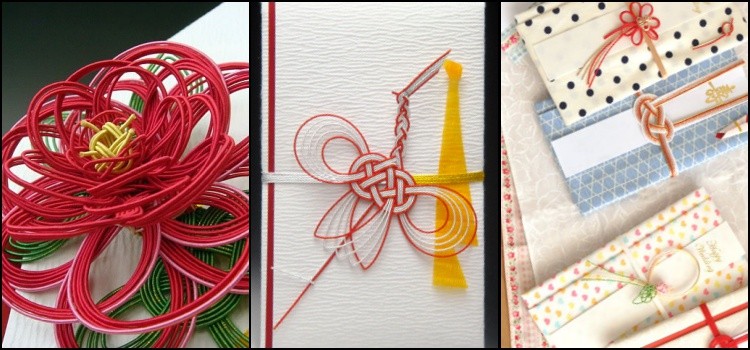
Situations where you can tip in Japan
Remember that even if money in an envelope accepted, is far from being necessary or expected. Some guides and tour groups can sometimes accept tips, especially if the group is foreign.
Some guides are used to foreigners and don't have this Japanese culture influence. The same can happen if you are attended by a Japanese person in another country, sometimes he does not follow the same custom as in Japan.
It's worth remembering that Japan is increasingly westernizing, so some don't mind accepting tips. Even so, keep in mind that Japanese people don't like to accept tips. Avoid it, even if you feel like rewarding it. This will prevent the 2 from embarrassing themselves.







